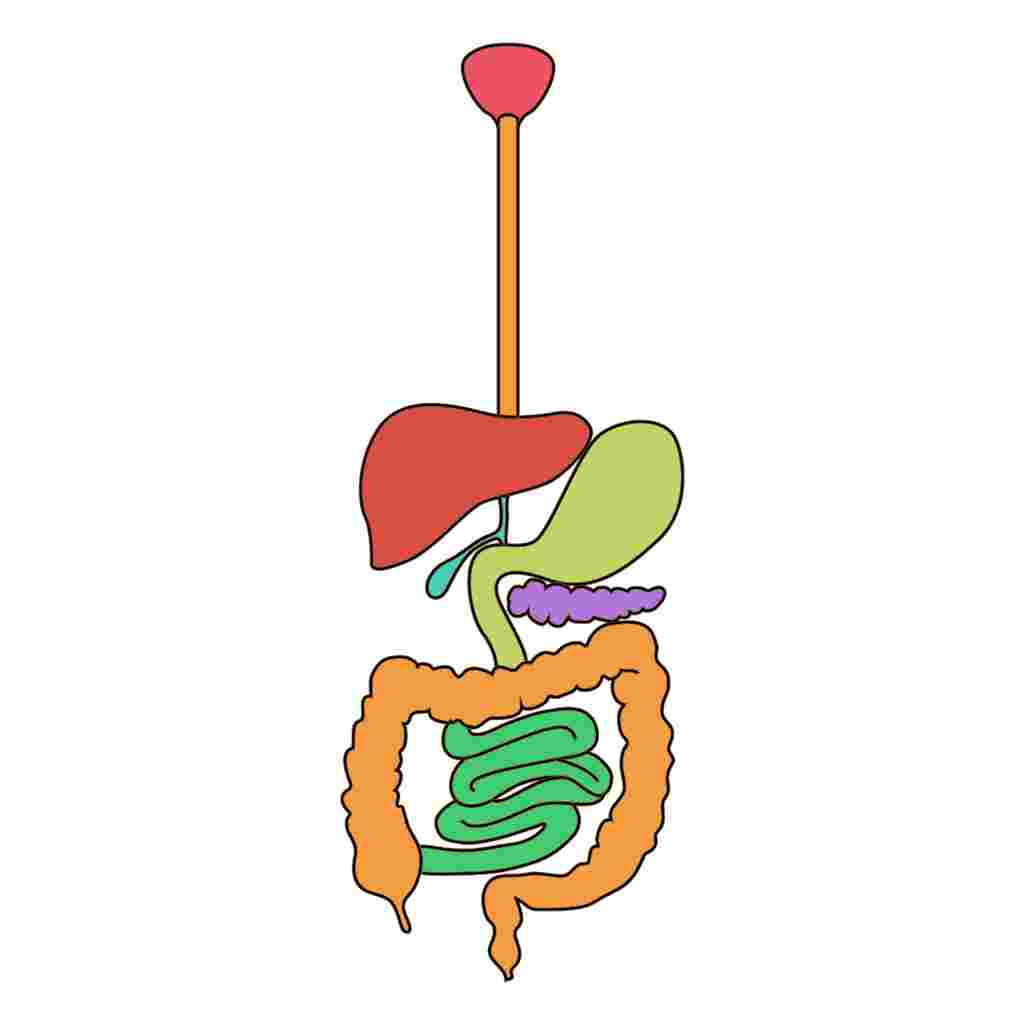Bloating, gas, constipation, acid reflux, heartburn, indigestion, leaky gut, allergies…
Lovely, huh?
Thinking about stomach acid probably isn’t what you had in mind at the moment but it’s a hugely important aspect of your health and is often at the root, or at least part of the root of your health problems, whether they’re obviously digestive in nature or not.
If you’re struggling with weight, hormones, digestive problems, allergies, or any chronic condition this information is really important for you! So stay with me! There are whole books written on this topic but I’m just going to give as quick of a summery as I can.

Your stomach is supposed to be a highly acidic environment. What goes on in the stomach when food enters is a very complex cascade of events that rely on proper stomach pH (between 1 – 3 generally). When there isn’t enough acid or when it’s not acidic enough the proper enzymes, gastric juices, and hormones are not released and food is not broken down the way it is supposed to be.
Chunks of food hanging out in the stomach not getting broken down = problems coming back up or problems going down.
When stomach juices are their proper acidity they allow proteins to be broken down, they fight off pathogens and bacteria, and they trigger the release of enzymes necessary to break down fat and further break down proteins. The proper pH is also necessary to allow for proper opening of the valve at the end of your stomach where the food (now called chyme, if we’re being technical?) is released into the beginning section of your small intestine. Your small intestine is where 90% of absorption of the nutrients from your food occurs but in order to be absorbed those nutrients have to have first been released.
When the stomach is not an acidic place, these are just some of the problems that can arise:
- GERD (gastroesophageal reflux disease), heartburn, indigestion. This is when the valve from the esophagus into the stomach relaxes and contents from the stomach comes up, burning the delicate lining of the esophagus. This is most of the time NOT from an excess of acid. There are such cases where there is an overproduction of acid in the stomach, but this is the exception, not the rule! The food is not broken down and therefore doesn’t move on in the digestive tract the way it’s supposed to and starts to come up where it’s not supposed to be. The solution at the time to make the burning stop is to take an antacid or to pre-preemptively take a PPI but this is only dealing with the immediate discomfort while also exacerbating the underlying problem.
- Food that sits in the stomach too long because it isn’t being burned and churned can start to ferment and become very uncomfortable. (Do you experience bloating? excessive fullness?)
- Proteins don’t get broken down and you either a) don’t absorb them (Do you have low energy? brain fog? are your muscles easily fatigued?) or b) they get into the small intestine and because these proteins haven’t been properly broken down they create tiny holes and tears in your small intestine and can get out into the bloodstream (have an autoimmune disease? allergies or sensitivities?)
- Overgrowth of yeast, candida, parasites, bacteria, and viruses. Stomach acid is a powerful line of defense against these and suppressing it allows these unwanted guests to flourish, causing a whole other mess of issues. We’ll save that loveliness for another day!
Well, if you have bloating, gas, diarrhea, constipation, abdominal cramps, brain fog, low energy, autoimmune diseases of any kind, heartburn, indigestion, GERD, and even things like hair loss or easily chipped and cracked finger nails you very well may have low stomach acid.
Here are some ways to get your stomach burnin’ and churnin’:
- Don’t eat on the run. Yeah, I know, that’s asking a lot for some of you (myself included sometimes!) but our bodies aren’t meant to digest when we’re not in the correct state of our nervous system. You’ve heard of fight or flight or rest and digest? Well, when we’re in fight or flight digestion ain’t happening. At least not optimally, so your brain will not get the proper signal to have the proper cells produce and secret gastric juices. So, before you eat, at least take a few deep breaths and sit and relax if you’re able!
- Chew! This not only takes some of the burden off of your stomach from having to break down large chunks of food but it also starts the chemical breakdown of carbohydrates and allows the message to be sent that food is coming and it’s time to get those tummy juices flowing!
- Take some raw unfiltered apple cider vinegar before meals. 1 teaspoon to tablespoon mixed with a small amount of warm water can stimulate stomach acid production. You can also do this with fresh lemon juice.
- Avoid foods to which you know you’re sensitive because this creates stress in the body which is counterproductive to producing adequate stomach acid. If you’re not sure if you have any sensitivities reach out to me and we can chat about it!
- Avoid refined carbohydrates. Eat lots of veggies, protein from meat, poultry, or fish, and healthy and nourishing fats like coconut oil, ghee, butter, avocados, and extra virgin olive oil. Keep pretzels, crackers, chips, cookies, cakes, bagels, cereals, pastas, breads, muffins, etc. to a minimum (or not at all!)
- Supplement with hydrochloric acid with pepsin and/or digestive enzymes. I do not recommend just doing this on your own so reach out to me for information about this!
Ok, lastly, you probably know someone who takes, or maybe even you yourself take, a PPI (Proton Pump Inhibitor – blocks the production of Hydrochloric acid) like Nexium, Prilosec, or Prevacid to deal with “excess” acid. If so, I encourage you to dig a little deeper into this topic! I’d love to chat with you about it so please respond to this if you have any questions or want more information!

I’ve been taking omeprazole for a long time and recently I have been experiencing reflux, bloating, and sore tummy quite often. I an hoping to schedule some time to chat in January.
Hi Luciana! I’m happy to chat whenever you get some time. Feel free to email me – liz@healthypursuitsliz.com to set up a time!